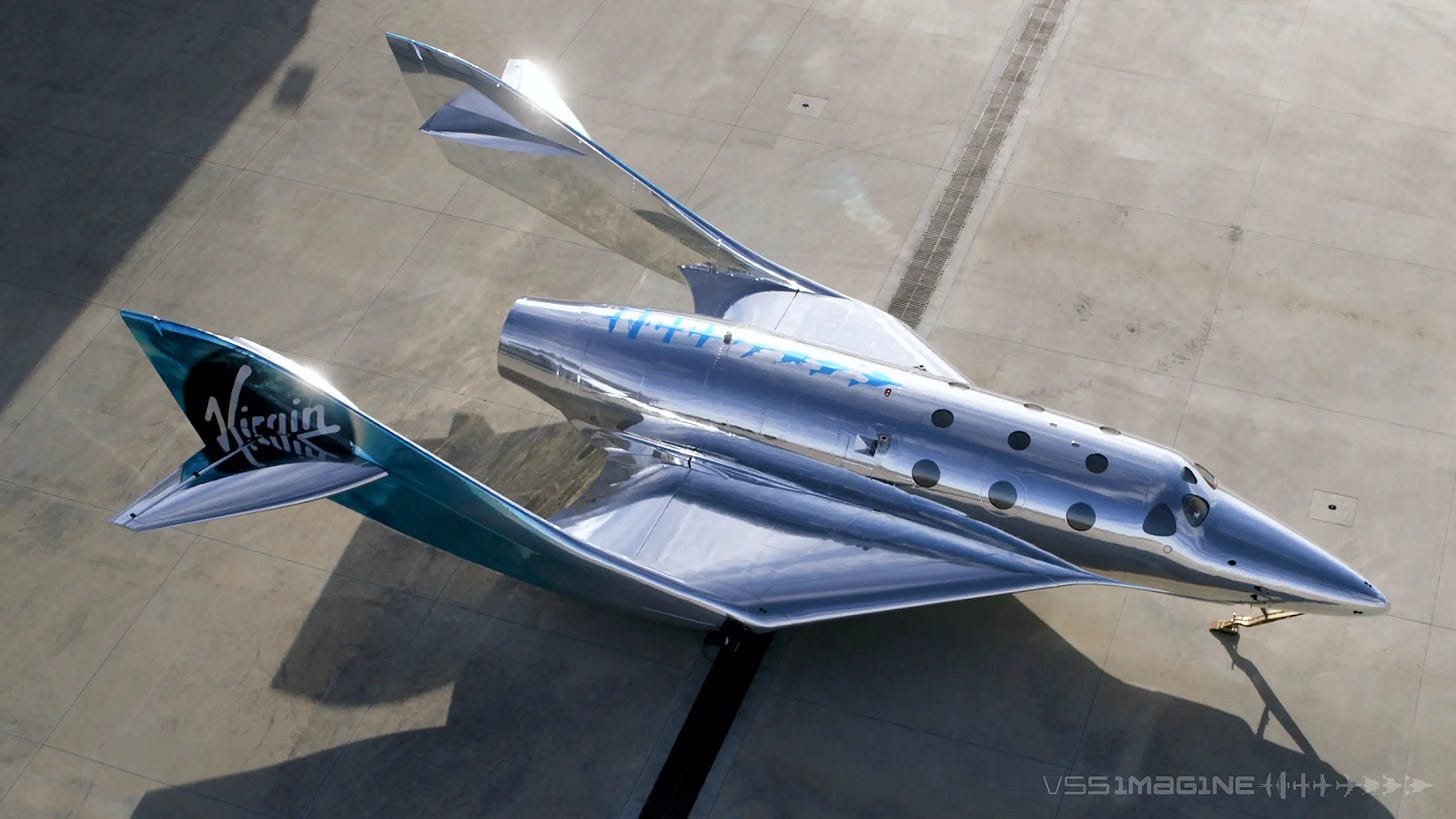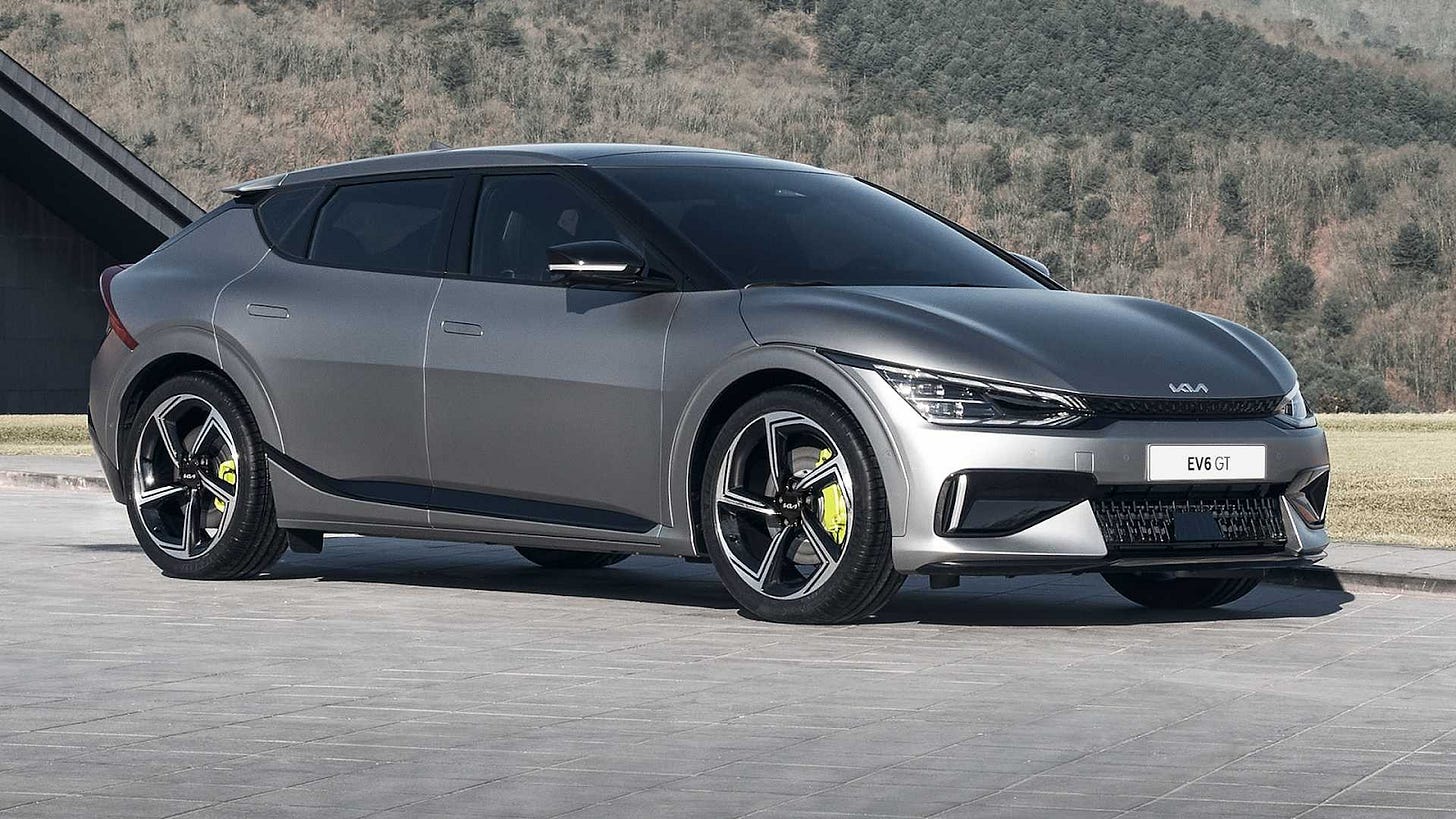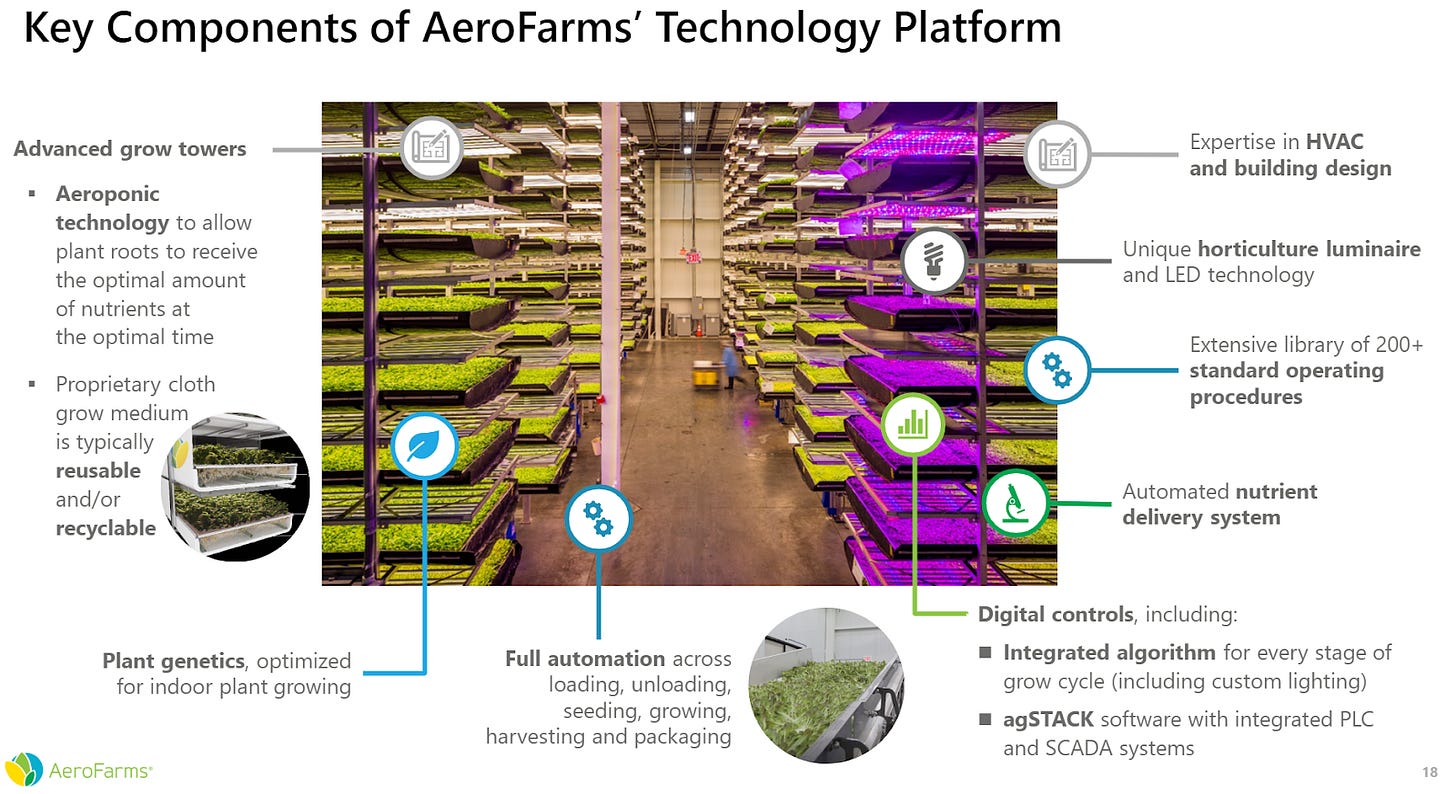Headline Developments
Leading robotics company Boston Dynamics, owned by Hyundai (005380.KS), have released their first commercial robot, called Stretch, focussed on warehouse automation. The robot has advanced 2D and 3D vision, a mobile base (meaning it can move anywhere within the warehouse), incredible speed and high load capacity. This is another significant step forward for the industrial automation segment which is also led by Japan’s Fanuc (6954.JP), OMRON (6645.JP) and Daifuku (6383.JP) as well as Ocado (OCDO.LN) and Sequoia Logistica (SEQL3).
As part of their Vision Day event, Arm (private) have given a glimpse of their new Armv9 architecture which they (and potential future owner Nvidia) hopes will be the preeminent chip architecture for the future. This is the first major architectural update in a decade, and should provide a 30% performance uptick vs prior generations, with the new architecture applied across all of its CPUs, from the smallest microcontrollers to the largest server-focused designs. Critically, security will be core to v9, with the introduction of Confidential Compute Architecture (CCA) - enabling computation to be performed in a hardware-based secure environment to protect data. This is particularly critical in edge applications like autonomous vehicles and vehicle-to-everything (V2X) tech (where a data breach could be fatal).
Robinhood (pending listing) is building a product within their platform to “democratise” IPOs, including its own, that would allow users of the app to access stock prior to listing. Equity trading platforms are a dime a dozen and no doubt, differentiated products like this will not only attract (and retain) more users to Robinhood but, slowly but surely, catalyse a slight erosion of Wall Street’s grip on the IPO (and cap raise) market.
From a pending listing to a very mixed bag of new listings…..
Deliveroo (ROO.L) plunged 31% on its debut today in what is called the worst IPO in London’s history! Several of Deliveroo’s advisors were quick to pounce on short-sellers as the culprits for the move, saying that at least three hedge funds had gone actively short in the morning session. But that’s likely an excuse for what others are claiming as a poor roadshow and valuation. Conversely, online education provider Coursera (COUR) rallied 23% on its first day, giving the company a $4.3b valuation. The company is seeing tremendous growth (particularly in light of the pandemic) and is growing its market share, not only in traditional online courses but University degrees and corporate education.
Joe Biden looks set to go all-in on offshore wind power, announcing on Monday that it was setting a goal of getting 30 gigawatts of electricity from offshore wind farms by 2030. Potential beneficiaries of such a policy would include Equinor (EQNR), Orsted (ORSTED.CO), Vestas (VWS.DE), Nordex (NDX1.DE), Siemens Gamesa (SGRE.MC) and GE (GE) - to name but a few!
Other Developments
Virgin Galactic (SPCE) released images of its latest spacecraft - the VSS Imagine - which will be used for suborbital space tourism. The company will start testing the new spacecraft mid-year from its New Mexico Spaceport America. The company’s aim is to facilitate 400 flights per annum from each of its spaceports.
ABB (ABB) and Amazon’s (AMZN) AWS have announced a collaboration to jointly develop a cloud-based digital solution for real-time fleet management of EVs. Using machine learning and analytics, the solution will include a set of features like charge planning and real-time monitoring with insight and actions for vehicle health and servicing, along with EV route optimization based on time of day, weather and use patterns. According to ABB’s President of eMobility, Frank Muehlon, the new solution will “revolutionize the world of electric mobility, integrating EV hardware and software into one ecosystem to provide a seamless user experience.”
Lyft (LYFT) and Motional (private) will, unsurprisingly, use Hyundai’s Ioniq 5 for their upcoming autonomous ride-hailing service. Motional, an AV startup backed by Hyundai (005380.KS) and Aptiv (APTV) has historically been testing its AI in Las Vegas with a fleet of Chrysler Pacificas but will shift to the Ioniq 5 when it starts rolling off production lines towards the end of the year.
Kia (000270.KS) has released a new range of EVs - the EV6, EV6 GT-line and EV6 GT, built on parent Hyundai’s E-GMP platform, on which Ioniq 5 (above) is also built. The EV6 and Ioniq give you a similar range (around 482 km / 300 miles), however, with the GT badge, the key difference is in performance. The top of the line GT will go from 0-100km/h in 3.5 seconds vs 6.1 seconds for Ioniq 5.
Polaris (PII) are building some automation into their GEM line of vehicles (golf buggy-style electric vehicles for use as shuttles and within university campuses etc). Through a collaboration with Optimus Ride (private), a developer of self-driving vehicle systems, Polaris will be rolling out a new line of GEM low-speed vehicles - with autonomous software and hardware - in the second half of 2023, initially limited to geofenced sites like University campuses.
Aurora (private), the AV company backed by Amazon, Hyundai and Shell, have signed up Geely’s Volvo to jointly develop autonomous trucks for North America. The partnership, spanning several years, comes off the back of a similar agreement with leading trucking company Paccar (PCAR) - the parent company of DAF, Kenworth and Peterbilt. Aurora is more of a full-stack AV developer, with an incredible depth of IP within the AI and software as well as in the hardware, specifically LiDAR, developed off the back of acquisitions in Blackmore and OURS Technology.
As an aside, Geely (175.HK) is also setting up a commercial aerospace company to develop satellite and communications technologies. Much of this will revolve around low-orbit satellites to meet the demand for high-speed connectivity capabilities; much like what Tesla is currently doing.
Now onto some AR 👓 developments!
Microsoft (MSFT) has won a $21.9b, 10-year contract to supply the US Army with AR headsets based on the technology developed in HoloLens. The headsets, called Integrated Visual Augmentation System (IVAS), are designed to deliver “enhanced situational awareness, enabling information sharing and decision-making in a variety of scenarios”.
Snap Inc (SNAP) is pushing further into hardware with an updated pair of AR glasses and a drone according to The Information. The new Spectacles 3 will reportedly include a display, so the user can see the AR overlaid with the real environment. On the drone-front, there’s been very little information since Snap acquired Ctrl Me Robotics back in 2017, and eyed off another “selfie” drone around the same time. This is all part of Snap’s repositioning as a camera company!
Niantic (private) the game developer behind Pokemon Go, has teased an AR headset. John Hanke, CEO and founder of the company, posted the image on Twitter, saying “exciting to see the progress we’re making to enable new kinds of devices that leverage our platform”. Niantic, which has raised $470m since being founded 10 years ago, has made a number of investments/acquisitions in the AR space recently, including optical platform DigiLens and developers 6D.ai and Escher Reality (AR dev). They also have a deep patent portfolio across depth estimation systems, real-time positioning and edge computing - making them way more than a pure game developer. This would be a great M&A target for someone like Nintendo (7974.JP) or Google (GOOG), both current investors in the company.
So what would a gaming experience on these AR glasses look like? Well, during the week Niantic also teased “Codename: Urban Legends”, an ultra-low latency 5G, multiplayer gaming experience. If you thought it was bizarre watching hundreds of people strolling around public spaces catching Pokemons, imagine the chaos of multiplayer experiences!
Mainstream acceptance of crypto has taken another couple of steps forward this week.
Firstly, PayPal (PYPL) has launched “Checkout With Crypto” allowing users to “seamlessly use cryptocurrencies in the same way as a credit card or debit card inside your PayPal wallet”, CEO Dan Schulman told Reuters during the week. Supported cryptocurrencies include Bitcoin, Bitcoin Cash, Ethereum and Litecoin, with payments being converted to fiat money prior to payment.
Secondly, Visa (V) will now allow the use of stablecoin USD Coin (USDC) to settle transactions on its payment network. This will initially be done via a pilot program with crypto.com, with the payment option planned to be more widely available later in the year. This is in line with similar developments over at Mastercard (MA).
IPOs
UiPath, a/the leader in Robotic Process Automation (RPA) has officially filed to go public. UiPath uses computer vision and artificial intelligence to automate routine and repetitive business processes, from extracting data from documents to filling in forms. Their revenues were up 81% last year (to $608m) off a customer base of 8,000, including a whopping 80% of the Fortune global 5000! From 2019-2021, their gross margins have gone from 71% to 82% to an impressive 90%. The company was last valued at $35bn (earlier this year) which would put it on a 35x 2022e P/S if it maintains the same growth run rate. That’s roughly mid-way between Snowflake’s (SNOW) 58x 2022e P/S (with a similar growth trajectory) and Slack’s (WORK) 24x 2022e P/S, which Salesforce (CRM) are paying. Slack has a similar gross margin to UiPath.
Vertical farmer AeroFarms is merging with Spring Valley Acquisition Corp (SV) in a deal valuing the company at ~$1.2b. The company operates the largest vertical farm in the world (below), growing over 500 different varieties of fruit and vegetables. They have multiple new projects under development which they claim are 390x more productive than traditional farming, use 95% less water, 0.3% of the land, use zero pesticides and are grown locally (reducing supply chain emissions). An overview of their tech platform is highlighted below (from the company’s investor presentation). They will join competitor Kalera (KAL.OL) as a public company in the vertical farming space.
UK-based car sales portal Cazoo will merge with AJAZ I (AJAX), a company backed by hedge-funder Daniel Och in a deal valuing the company at $7b. The company, which is selling ~5k units/quarter, not only offers online used car sales but refurb services (250k cars p/a), 17 customer centres and >175 car transporters. Sales in 2022 are expected to hit $2.8b, putting the company on a 2.5x fwd P/S compared to Vroom (VRM) on 1.27x, Carvana (CVNA) on 1.7x and Carsales.com (CAR.AX) at 8.9x. However, Carsales is the only one with free cash flows and a net profit. Cazoo and Carvana aren’t expected to have a positive free cash flow until 2024 (and perhaps 2026 for Vroom). An excerpt from the investor presentation below comparing the company's growth vs competitors.
Electric air-taxi startup Lilium will merge with Qell Acquisition Corp (QELL) in a deal valuing the company at ~$3.3b. The German-based company is developing a 7-seater electric air-taxi that can vertically take-off and land. They’re targeting commercial operations from 2024. They join Archer Aviation (ACIC) and Joby Aviation (RTP) as upcoming air-taxi SPACs, alongside the listed EHang Holdings (EH) out of China.
South Korea’s SK IE Technology (private), which makes lithium-ion battery separators, will start trading on the Korean Exchange on Tuesday next week, raising $1.47b through the process. The company started commercial operations in 2005 and they are now developing separators for IT devices (such as smartphones) and EVs from 17 production facilities around the world.
M&A | Cap Raise | Earnings
Spotify (SPOT) have purchased Betty Labs, the creator of live audio app Locker Room, marking the company’s first real foray into social audio. This comes off the back of previous comments by management to explore more engaging interactions between creators and listeners. Locker Room, at present, has a focus on sports - enabling fans to have live audio conversations about ‘’takes, rumours, news and teams”. Pivoting this model towards music, perhaps overlaid with live-concerts, podcasts and other content could be a real value-add innovation for Spotify who appear more in ‘’product parity” land as they try to keep up with a rapid pace of innovation in their industry.
Squarespace (pending listing), is buying restaurant services provider Tock for over $400m. Tock provides technology for online reservations, takeout and other services. Squarespace said Tock serves 7,000 hospitality operators ranging from neighbourhood pizzerias to Michelin-starred restaurants and wineries in 30 countries. It also helps its hospitality clients communicate with customers and to dynamically set prices to increase sales.
Have a great week.
Charlie
LinkedIn or E-Mail (cnave@granitebaycap.com)
Granite Bay Capital is an innovation focussed investment company with a deep focus on the companies at the leading edge of innovation across major themes such as AI, ubiquitous computing, sustainability, automation and longevity. Any views expressed in this article are those of the author(s) and do not constitute financial advice.













